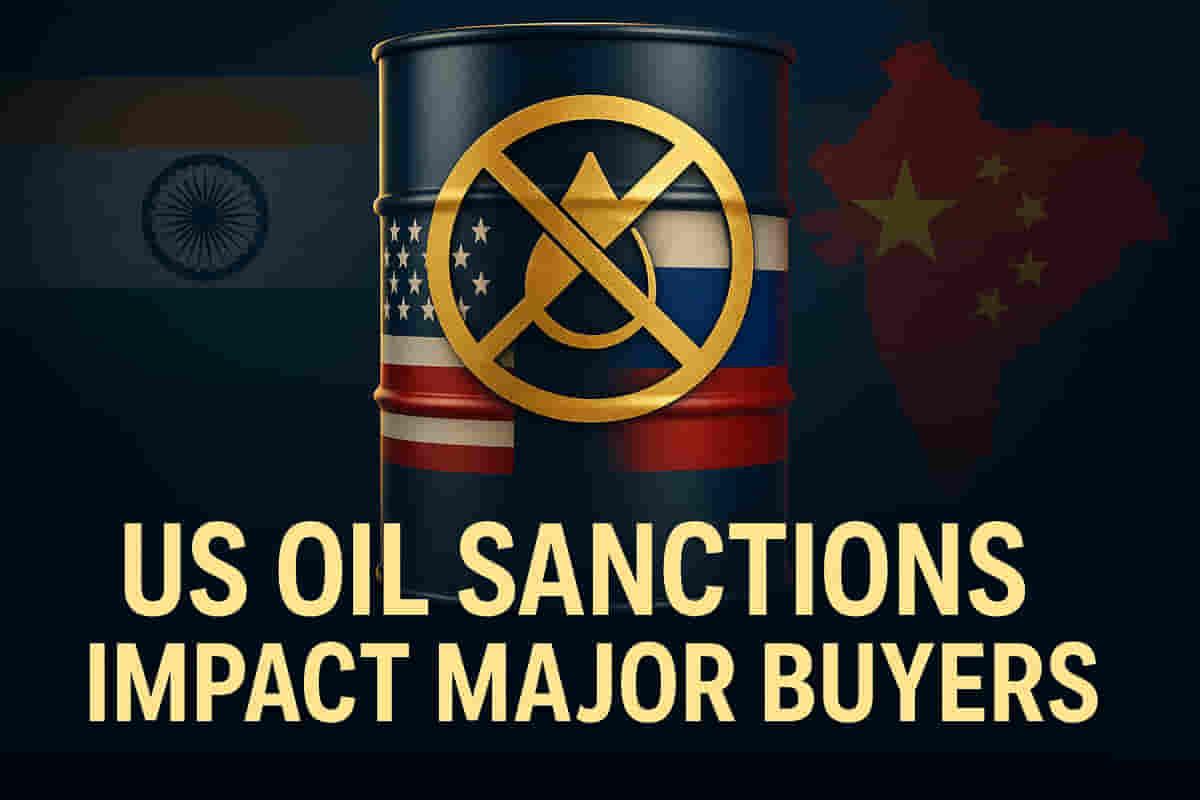US Sanctions on Russian Oil Firms Pose Limited Threat to India, China Imports: Kpler Analysis
Energy
|
30th October 2025, 3:20 PM

▶
Stocks Mentioned :
Short Description :
Detailed Coverage :
The Donald Trump administration has imposed sanctions on Russia's leading oil corporations, Rosneft and Lukoil. These entities collectively produce over 5 million barrels per day (mbd) of crude oil and condensate. These actions follow earlier sanctions by the Biden administration on other Russian oil firms and are expected to cause a brief interruption in Russian crude exports as companies reorganize their trading operations.
Analysis by Kpler suggests that while Indian and Chinese refiners might face temporary disruptions and need to adjust refinery operations or deplete inventories, they are unlikely to completely stop buying Russian crude. This is due to their substantial combined imports of 2.7-2.8 million barrels per day. Sellers will need time to navigate these restrictions. Some Russian companies like Gazprom Neft and Surgutneftegaz have already reduced exports, potentially diverting supply to domestic markets or using alternative trading channels.
Furthermore, Kpler notes that sanctions primarily target specific entities, not Russian oil itself. Since Rosneft acts as an aggregator for India, allowing non-sanctioned entities to maintain supply, and as long as compliance with price caps and shipping regulations is met, Indian refiners like Indian Oil Corporation plan to continue purchases. Reliance Industries, however, has shifted to sourcing substantial volumes from the US and Middle East.
Impact: This news has a moderate impact on the Indian stock market, particularly affecting energy companies, refiners, and the broader energy sector due to potential volatility in crude prices, supply chain adjustments, and shifts in import strategies. The impact is rated 7/10.
Difficult Terms: Rosneft, Lukoil, Gazprom Neft, Surgutneftegaz: Major Russian state-controlled oil and gas companies. Kpler: A global provider of real-time data and analytics for the energy market. Crude oil: Unrefined petroleum, a key source of energy. Condensate: A light hydrocarbon liquid found with natural gas, similar to light crude oil. Urals, ESPO, Sokol, CPC Blend, Varandey: Different grades or export blends of Russian crude oil. Seaborne crude exports: Crude oil transported via ships. Crude processing: The refining of crude oil into usable products like gasoline and diesel. Primary sanctions: Sanctions directly targeting specific individuals, entities, or activities. Secondary sanctions: Sanctions imposed on third parties for engaging in business with sanctioned entities. Bills of lading: A legal document issued by a carrier to a shipper detailing the type, quantity, and destination of goods. OFAC: The U.S. Treasury Department's Office of Foreign Assets Control, responsible for administering and enforcing economic sanctions. Aggregator: In this context, a company that buys and sells oil, potentially masking direct transactions with sanctioned producers. Price cap: A G7-imposed limit on the price of Russian oil to restrict Russia's revenue while allowing some global supply. East-West Spread (EFS): The price difference between crude oil grades from the Atlantic Basin and the Middle East. Atlantic Basin: Regions bordering the Atlantic Ocean, including Europe, Africa, and the Americas. Term contracts: Agreements for the regular purchase and sale of goods over a specified period. Teapot refineries: Small, independent refineries in China.